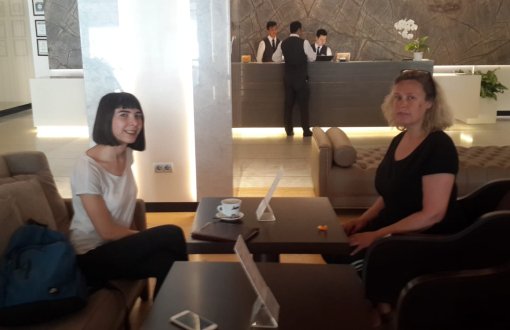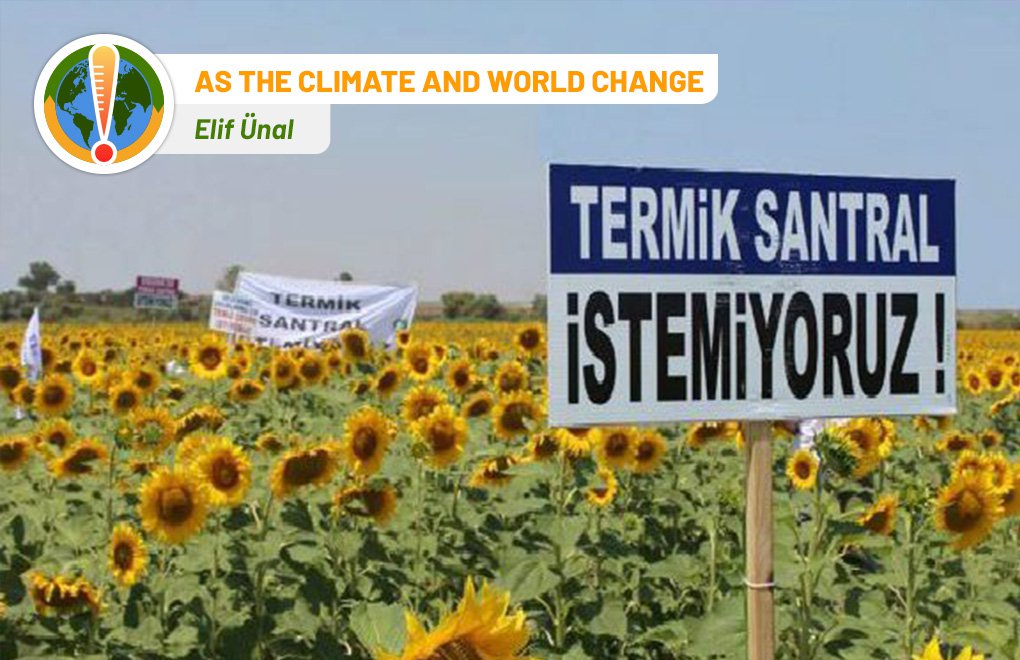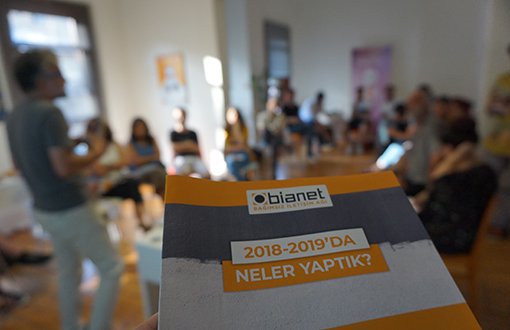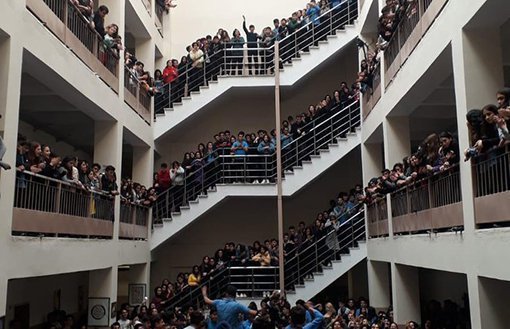Click to read the article in Turkish
According to Global Gender Inequality Report of 2017, Sweden is ranked 5th most developed country in terms of the situation of women and men among 144 countries. All the education system, starting from the kindergarten is built on the idea of equality.
Sweden appears before us with many laws to reduce the obstacles that women face in working life from parental leave to child-care centers. Indeed, Sweden is one of the most privileged countries in the world for women.
What is the saturation point in the struggle for equality? Is there an end?
Anna Klara Bratt who is the founder of the first online feminist news journal feministiskperspective.se, is pointing out that Sweden is trapped on the self-image of being the "country of equality."
"For many years, we have believed that we are in equal paradise of earth. In the 70s for couple of weeks we were. However, you have to work all the time. You can never come to a place where it is finished", she says.
The results generated by Me Too movement, which had a repercussion in Sweden as well after it has had a great influence all over the world, causes a fraction in people's dreams. The results show that women are subjected to domestic and occupational sexual harassment in various sectors.
We've interviewed with Anna Klara-Bratt, who has come to İstanbul as a speaker for Gender Based Journalism conference, which is organized as part of the project run by IPS Communication Foundation/bianet and supported by Kaos GL. Anna Klara Bratt told the problems she faced from the time of the foundation of the magazine to date, feminist struggle in Sweden and shortcomings in the struggle.
Feministiskperspectiv.se is known as the first feminist news magazine in Sweden. How did you decide to start such a project?
After trying to include gender balance on feminism in the trade union press for ten years we decided to start feministisk perspective. Also because of the hatred and climate at that time it was not popular. Only anti-feminists were published because it is like a cycle for feminism. It was very quiet in the feminist areas. When we started, we got a lot of subscribers in couple of hours. The problem was editorial. It was not lacking readers or providers because there are many feminist journalists and academics in Sweden.
What are the advantages of being a pioneer and what are the disadvantages of it?
We were pioneers in two ways. It was the first feminist news magazine but also first online subscribe magazine in Sweden. I was working with paper magazine for many years. The advantage is of course the distribution. It is available for everybody. For instance, people with visual defects could also reach because computer can speak off. We can distribute to the whole world. This is the advantage.
It has two downsides and one is a global problem. The readers have not yet understood that they still pay for journalism although it is on the Internet. And other one is the costs of technique in a subscribe magazine. From time to time I felt most of our money
went to techniques instead of journalism. We are working on that.
Have you ever taken any bad response against the magazine?
We have all crowd of hatred. Even before we started, one of the big news magazine had the survey: Do we need the feminist news magazine? Trolls, as we say, the hatred trolls mobilized thousands of people saying no we don't need them. But there were also thousands of feminists saying yes. We have antagonists, anti-feminists from the very beginning.
After it is published?
They still don't like us. But we are nine or ten million people living in Sweden. And we have 70 thousand readers every month. The readers have been constantly growing up. And we reach new readers all the time. This is interesting with the Internet. Sometimes we reach another group. Sometimes you can see the number of men reading an article is increasing. You learn a lot by these patterns. Before, you had never known. Hatred goes up and down. It depends on what we wrote.
A magazine called "Worker" had undergone a transformation with you starting to serve as its editor.. As far as I know, you employed equal number of women and men. And it covered gender sensitive topics. Especially in Turkey worker unions are very male dominated areas. How did you achieve such a transformation?
We used a structural method with 4 levels. Gender balance in stuff, gender balance in the structure and power, gender balance in the column in the magazine and also taking responsibility for the working place. That was the method.
"Men being interviewed, men in the columns, men in the pictures"
We had a lot of reactions because before we did it there were 70 to 80 percent men in the columns, men being interviewed, men in the pictures, men in the stuff and men in the board. But if you look at the members of the trade union which publishes that magazine, it was more and more women were coming in. It was very interesting because women had worse working conditions in Sweden. So when we did it, even our political antagonists said you should not care about women, class is enough. It is the mindset of orthodox leftism.
Then we wrote a method book called gender balance. This is how you do it. And afterwards we were like "right now nobody can tell us that it is not possible". But trade unions are very weakened in Sweden because of the political situation but also worker movement in all Europe is weakened. We took the best things we learned and the best reporters we had and we started a new magazine.
I can describe you as a successful feminist woman. What are the obstacles of being a feminist in your own life?
Combining children, parenting and work. Fortunately, we have a nice childcare system but I am also living on my own. My daily life has become complicated. Now on this magazine we are mostly women with children and dog and housing. We do have an editorial room but we can work anywhere and sometimes we live wherever we want to in the world. So it is not a traditional workplace. So we could stay at home with laundry and work on the articles at the same time. It was not possible before but now there is Internet. We work where we want to work.The problem is we always work even on vacation or in the taxi. We don't mind but sometimes children complain.
We have hard conditions financially. It is difficult to get paid from digital journalism and it is also difficult to get paid for feminist journalism. It is a new kind of journalism. It contains lots of perspective. LGBTI journalism, international perspective, intersectional perspective. Whole variety of usage of terminology. It is a mixture of academic language, activistic language and our ambition to be really easy to read. In Sweden, we have a term for this. It is actually easy reading. It should be understood whether you are an academic or a migrant. We work a lot with the language to make it super easy. So it is a new kind of journalism. We figured it on the way. We wondered why other media are not interested. But we call them old media.
"We have believed that we are in equal paradise of earth"
After the Me Too movement became widespread it is realized that in Sweden, women in different sectors were exposed to sexual harassment. How did Swedish people take this result?
We think it is a problem with the Sweden's self image. For many years we have believed that we are in equal paradise of earth. In the 70s for couple of weeks we were. However, you have to work all the time. You can never come to a place where it is finished. We had this childcare system, elderly care system but now 30 years late the wage gap still 20 percent on sector level and individual level.
I think Sweden got very satisfied with its self-image in 70s. And it presented this picture to the world and than it get stuck. And it was a shock to everybody that sexual harassment is going on everyday and every workplace. We were shocked but women shelters were not. So there is a lot to work on in Sweden and it is difficult when you live in a society where they think this society is the best in the world.
When there is pressure people are coming up with more innovative methods
We are reaching out to other countries because they are more innovative. They are not living in a self lie. They are pissed of. It was very interesting to hear from universities, and LGBT+ movement in Turkey. If you are in very difficult situation you become sharper. Your analysis is sharper, the resistance is sharper, the thought and the mind is sharper. And it needs to be. (EÜ/TK)











